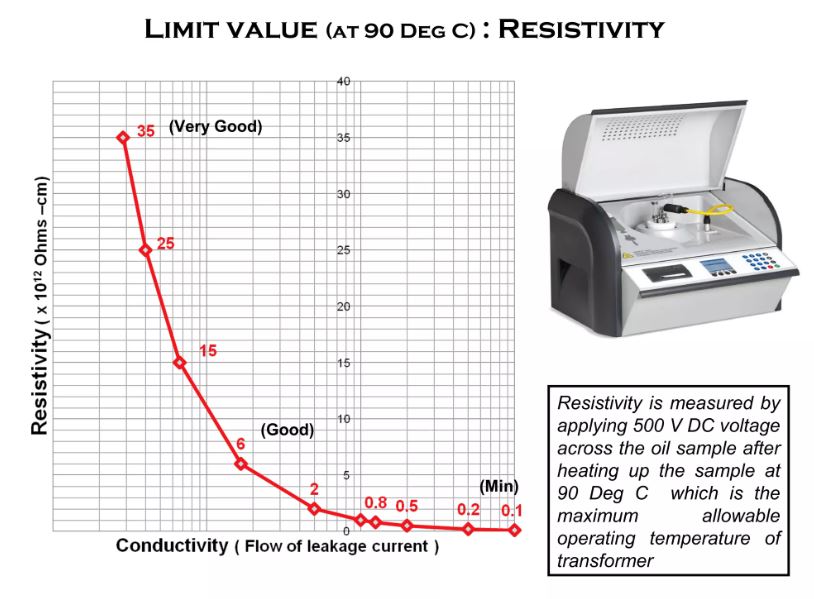Resistivity
Transformer oil plays a vital role in electrical power equipment, acting as both an insulator and a coolant. The electrical resistivity of transformer oil is a critical parameter that indicates its insulating properties. High resistivity values signify fewer free ions and ion-forming particles, which is essential for effective insulation.
Importance of Electrical Resistivity: The resistivity of transformer oil is a measure of its ability to resist the flow of electric current. High resistivity indicates good insulating properties, which is crucial for the safe and efficient operation of electrical equipment. Regular testing of transformer oil's resistivity helps in determining its suitability for continued use, identifying the need for regeneration or filtration, and ensuring the safety and longevity of electrical equipment.
Standards and Testing Methods: The resistivity of transformer oil is typically measured using standards such as IEC 60247, ASTM D-1169, or IS 6103. The test involves applying a voltage and measuring the current to calculate the specific resistance of the oil. The oil's resistivity is usually measured at two temperatures: 27°C and 90°C. The minimum standard resistivity at 90°C is 35 × 10¹² ohm-cm, and at 27°C, it is 1500 × 10¹² ohm-cm.
Factors Affecting Resistivity: Several factors can affect the resistivity of transformer oil, including temperature, moisture content, and the presence of contaminants. Higher temperatures generally decrease resistivity, while moisture and contaminants can significantly reduce the oil's insulating properties. Regular monitoring and maintenance are essential to ensure the oil maintains its high resistivity and insulating capabilities.
Applications and Benefits: Electrical resistivity analysis is used to assess the condition of transformer oil and determine its suitability for continued use. By regularly testing the resistivity, maintenance personnel can identify when the oil needs to be regenerated or filtered to restore its insulating properties. This helps in preventing failures and extending the life of electrical equipment.
Electrical resistivity analysis is a crucial tool in maintaining the health and performance of transformer oil. By regularly monitoring the resistivity, it is possible to ensure the oil continues to provide effective insulation and cooling, thereby enhancing the safety and reliability of electrical power equipment.
